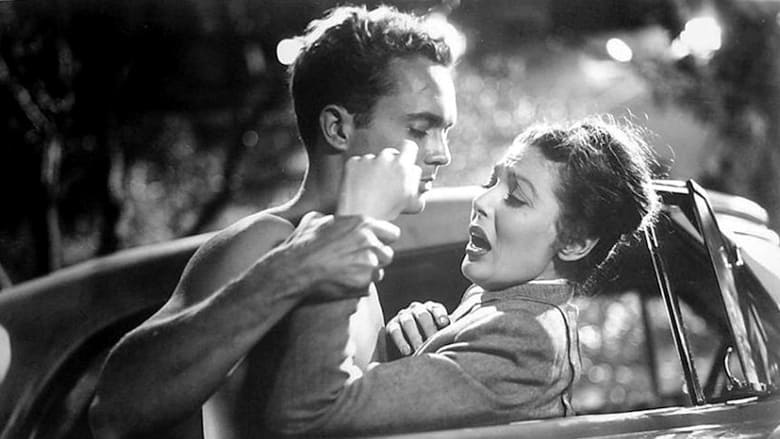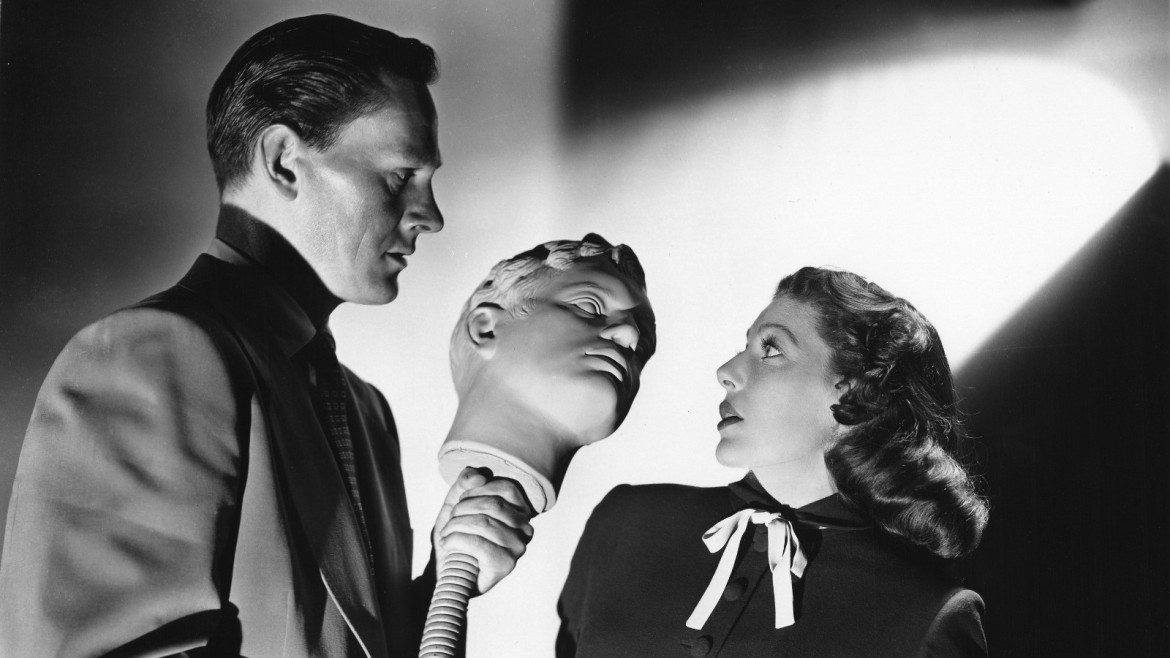A small subset of film noir focuses primarily on the experience not of the femme fatale, but the good girl, drawn into a series of lies as a result of her victimization by men in general, and usually one man in particular. The structure of films like The Blue Gardenia show the “good girl gone bad,” getting drunk and partying it up with dangerous men (an “homme fatale”), ultimately leading to attempted assault or violence. But while these films often highlight the dangers that women navigate and warn women to, you know, no do that, by focalizing through their female protagonists, they open a reading in which women are not vilified for their sexuality or their desires, and the men who take advantage of them, both the heroes and the villains, are revealed as participating in the same process of violence and victim-blaming.

The Accused, now on Blu-ray from Kino Lorber, is an excellent example of the subgenre, dealing with a professor’s assault by her student that ultimately leads to his death. Loretta Young is Dr. Wilma Tuttle, a professor of psychology at an unnamed university. During an exam, her student Bill (Douglas Dick) flirts with her, delighting in her discomfort. Over the course of an evening, Bill attempts to assault Wilma, and in fighting him off, she kills him. This sets off a cascade of events as Bill’s guardian, lawyer Warren Ford (Robert Cummings), and police investigator Ted Dorgan (Wendell Corey) attempt to parse out whether Bill’s death was an accident or murder, and Wilma attempts to conceal her crime.
The first half of The Accused explores the experience and aftermath of the assault and murder, focalizing heavily through the perspective of a woman traumatized both by what was done to her and what she has done. The cultural context emphasizes the weight of what has happened—Wilma debates with herself about what to do, how she can’t go to the police and confess because it would destroy her reputation and her career. Even if she were exonerated by reason of self-defense, her reputation would be destroyed. This is a professional, intellectual woman, already subject to harassment from male students and existing in a male-dominated field. That she was in a car with a male student who had expressed sexual interest in her would be enough to damage her reputation; that he attacked her and she killed him would still subject her to social ostracization—he was a “brilliant young man,” she was in a car with him, what did she expect? The opening scene makes this clear when she accepts a ride from a truck driver who assumes that she has been assaulted and tells her to be more careful.
This is not to say that The Accused exactly intends in-depth critique of its culture, but it does elicit audience sympathy for Dr. Tuttle, showing the intensity of Bill’s misogyny, her honest attempts to help him, and the “boys will be boys” attitude of the men around her. As the film proceeds, the focalization shifts as Tuttle retreats more into her guilt and memories of the crime, putting on a colder, distanced face that enables her to protect herself. Whether intentional or not, The Accused is a stark depiction of the psychological trauma she experiences, the pain she tries to conceal, and the lack of understanding from men. Wilma apparently has no female friends or confidants, so much of the film is Young surrounded by an all-male cast.

Much of the film’s complexity is thanks to the script by Ketti Frings, based on the novel by June Truesdell. The script digs into Wilma’s psychology, showing her trying to manage the inappropriate behavior of her student while attempting to convince him of his worth, followed by her fears and terror at his attack and her own sense of guilt and attempts at self-preservation. But she is not treated as a passive victim—she reasons with herself, attempts to preserve her life and career as she copes with trauma. She’s accustomed to being the only woman in a room full of men who either attempt to condescend to her, analyze her, hit on her, or browbeat her—sometimes all at the same time—and her management of them all, even as her guilt gnaws at her, contributes to an overall sense of her intelligence and capability.
This is drawn out by William Dieterle’s masterful directing; the scenes leading up to Wilma’s assault and Bill’s murder are fraught with developing tension, as the pair move from sunny sidewalks to chiaroscuro cliffs. Wilma’s internal struggles develop via Young’s physical performance, as she goes from an uncertain and deeply troubled woman to a person being drawn out, on the one hand, by love, and forcing her own trauma into the background. Despite the somewhat clunky use of voiceover in sections of Young’s performance, the film digs into the psychological complexity of her character, promoting audience sympathy while allowing her space to grow and change. There is a poignancy to scenes in which Young is interrogated and brow-beaten, or white-knighted, by a gaggle of men, all of whom have their opinions on how assault works and how women behave.
The Accused becomes even more interesting in considering Loretta Young’s star persona and personal past. She was often cast as the cold, innocent woman, attractive but sexually frigid or unavailable. That Young herself recalled being assaulted by Clark Gable lends a retroactive layer to her performance here—there is a complex of victim-blaming and cultural stereotyping and fear underlying her performance, and the film as a whole.
If The Accused is ultimately of its time, it also attempts to stretch beyond it. While not exactly a progressive film, it nevertheless grapples with assault, victim-blaming, and women existing within a deeply patriarchal culture, while avoiding making Wilma herself the villain of the piece. It’s a fascinating cultural artifact, an insight into how far we come and how little things have changed. It allows for space for interpretation, for different viewer reactions, and even for excusing a killer. For a film made in 1949, that’s quite a feat. The new Blu-ray is gorgeously restored, as we’ve come to expect from Kino, and makes an underrated and underdiscussed film once again widely available.
The Accused is available on Blu-ray from Kino Lorber.


